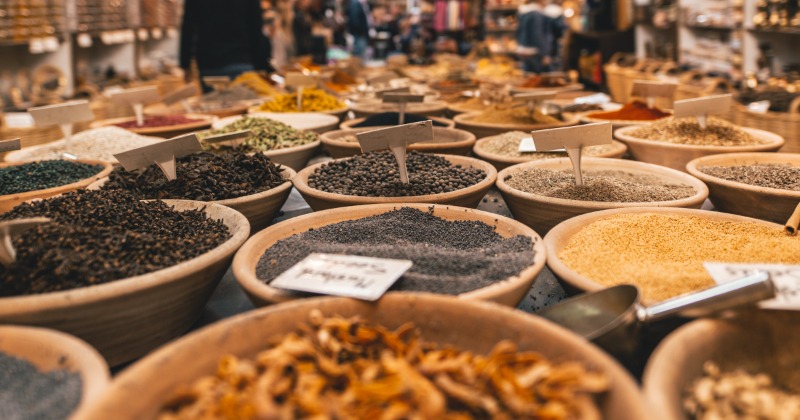One of the striking features of India is its rich and diverse cuisine. India is a vast country and almost every state or region has its unique flavours to be relished. Staple food sources such as wheat, rice, lentils, spices, millet, barley, and various types of flour are widely consumed in India. Wheat is one of the most consumed cereals in India and as per the latest government statistics, wheat production is likely to rise 4.1% to a record 112.2 million tonnes in FY 2023-24. It has been observed that the demand for FMCG (Fast Moving Consumer Goods) products have increased significantly over the years. The FMCG market in India is expected to increase at a CAGR of 14.9% to reach US$ 220 billion by 2025, from US$ 110 billion in 2020.
The change in the lifestyle of people can be attributed to the notable rise in the demand for FMCG items. The modern generation is health-conscious and prefers to cook nutritious food and buy quality, easy-to-cook food products. Subsequently, many progressive FMCG brands have launched gender-neutral, convenient and affordable food products to attract the younger customer base.

Unsplash/Representational Image
In the era of thriving market competition, when the costs of staple food items are rising exponentially, it becomes essential to ensure that every citizen should have access to nutritious, quality and affordable food staples like wheat flour, spices, etc. According to a 2022 report by the Centre for Science and Environment(CSE), more than 1.7 million Indians per year die from illnesses that can be linked to dietary risk factors and weight levels. At least 71% of Indians live in poverty and cannot afford a balanced diet. Rice and wheat are the two primary food staple items in India, and they are generally affordable and accessible for most people. The government provides subsidies for these grains, and there are various schemes like the Public Distribution System (PDS) that make them available at subsidized rates to low-income households.
Jump To
![]()
Modern generation embracing authentic, ethnic food
It has been noted that millennials have begun to appreciate their cultural roots and thus, want to incorporate healthy food choices into their routine diets. One of the appropriate examples to corroborate the same is the increasing demand for roasted gram flour (Sattu) in recent times. Roasted gram flour is a rich source of minerals and proteins, which has attained popularity among new-age consumers who consume roasted flour as a substitute for a protein shake. Compared to earlier generations, millennials are more concerned with their health and favour wholesome, nutritious foods. Consumers expect FMCG companies to offer products made from organic resources without the use of artificial additives, preservatives, or colours. Millennials are used to personalized experiences, therefore they prefer FMCG brands that can adapt to their requirements by providing nutritious, cost-effective, and appealing food products.
Availability of quality food items to all classes
Every stream in society should have access to healthy and affordable food. However, organic food items are generally inaccessible to the majority of the masses due to their high costs. Fortunately, there are some FMCG brands available in the market that have made quality staple items like wheat flour available at almost 40% lesser costs as compared to generic market prices. Along with the affordable costs, consumers expect food FMCG companies to be transparent and honest about the components of their products, where those components came from, and how they were made.

Unsplash/Representational Image
Importance of organic food for new generation
Organic and ethically sourced food items have recently piqued the interest of the youth due to a variety of advantages. Organic items are healthier to consume since they are produced without the use of artificial chemicals, pesticides, or fertilizers. When compared to wheat that is cultivated traditionally, organic wheat frequently tastes better and is more flavorful. By protecting soil health, conserving water and energy, and lowering pollutants and greenhouse gas emissions, organic wheat farming practices advance sustainability. This supports long-term ecological balance and environmental protection.
FMCG products that also serve a social purpose are more popular among millennials. By creating jobs, boosting the local food supply, and lowering reliance on imports, organic farming helps the regional economy.
India is a thriving economy that nurtures a competitive FMCG ecosystem. However, it is equally important to ensure that staple food and basic commodities are available for all citizens across the nation.
About the author: Abhishek Kaushik is the founder of MITRA. All views/ opinions expressed in the article are of the author.


